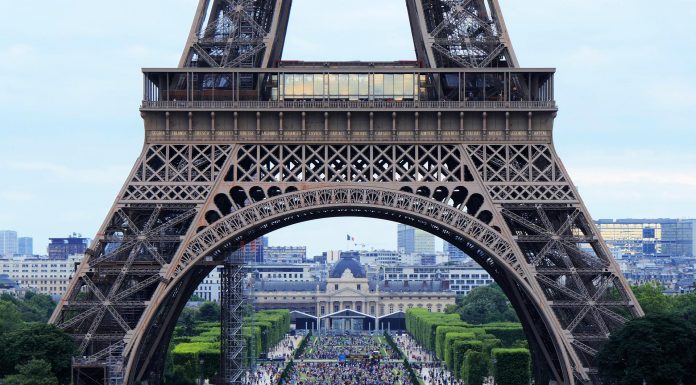By Máté Hajba, a Hungarian writer and a columnist with Young Voices Europe. Máté runs the Free Market Foundation, a Hungarian libertarian think tank. He was formerly the editor of the Liberal Voices Syndicated project of the 4liberty network.
The European Union is extremely ambitious with its green policies. Perhaps overly so. Just recently, Germany, alongside a handful of countries, took a swing at overzealous decision-makers in Brussels and tried wedging some reason into the feelgood policy of banning the sales of petrol-powered vehicles by 2035. But there are plenty more EU bills and laws that need scrutiny from a rational perspective, especially around climate change. Passing laws with impossible goals that could cause more harm than good just to pose as politicians who ‘take action’ ushers in yet another form of populism.
Right-wing populism is becoming a larger threat to the freedom and liberty of member states, with parties gaining popularity on anti-immigration, nationalist platforms while left-wing populism is lurking behind, waiting to spew out its “the rich get richer and the poor get poorer” slogans. Meanwhile, there is another type of populism emerging, this time in a mantle of green.
Anxiety is a key feature of populism. There has to be a threat people are afraid of, such as immigration undermining a nation’s culture, or taking away jobs, or maybe it’s not the immigrants but the rich who will exploit the poor. When people are afraid, it doesn’t matter whether a threat is real or not. The fear alone is enough for populists to offer apparent solutions: stop immigration or tax the rich. Usually while saying these things, they do the exact opposite, but people living in fear will choose to believe them to alleviate their anxieties.
Germany’s last-minute block of the EU’s combustion engine ban has triggered other states to protect their own interests and rebel against laws that threaten industries. The EU’s climate agenda is beginning to unravel.#CostOfNetZero
Read more: https://t.co/LvOiKdBIJu pic.twitter.com/rilCpuuzac
— Net Zero Watch (@NetZeroWatch) March 17, 2023
Nowadays, one of people’s most pressing fears is about climate change. EU citizens cite climate change as today’s biggest political challenge. According to a study in The Lancet, 75% of young people have serious worries about the future, while 50% admitted that climate anxiety negatively impacts their lives.
No wonder populists found this niche. Arguably, the entire EU Green Deal is based on this fear. Decision-makers are plagued by short-termism, coveting reelection, so they want to project strength in tackling the issue of climate change. Whether the policies they introduce would work is not their problem. The day of judgement is too far in the future. This leads to feel-good decisions rather than rational ones. An example of this is the banning of plastic bags when canvas is worse environmentally.
Ambitious goals should be lauded, but only up to a point. When wistful thinking replaces reason, that is when decision-makers slide into populist territory. In the long run, goals will not be achieved, leading to an even greater fatigue in the population, making them more callous to empty promises. This would be a good thing, but at what cost?
Central planning
The EU is planning to become carbon neutral by 2050. That sounds good. But the nitty gritty seems not to be hashed out. It seems to be an achievable goal without compromising on prosperity but it needs a lot of state intervention. Would this really be worth it? Wouldn’t providing incentives and nudges to businesses be better than reshuffling the whole market centrally?
Often, anti-business policies are disguised as green policies. Sustainability should not sacrifice economic growth and progress just because some decision makers hate certain big companies.
There are cases, of course, when certain businesses have no place in the EU. Brussels finally decided to be independent of the yoke of Russian energy, for example. This decision should have come in 2014, when the Kremlin first started seizing Ukrainian territory. Now, it is more difficult, the cost is greater and the infrastructure and technology of green energy is not yet good enough to replace current energy sources. Energy independence is a welcome step but the decision-making has been poor, to say the least.
Central planning did not work in the past and it won't work this time. My take on the 'European Green Deal' on @brussels_report:
'The “European Green Deal”: another fateful attempt at central planning'https://t.co/2MgoGIEq2S
— Fabian Wintersberger (@f_wintersberger) April 21, 2021
The EU wants to ban sales of cars with internal combustion engines by 2035. But the infrastructure to sustain EVs is lagging behind the levels needed to feed the growing fleet of cars. China is currently the largest manufacturer of batteries and Chinese companies are looking at the European market with a hungry gaze. Will Chinese energy be greener than Russian gas? Hardly. The EU’s hunger for batteries will also feed the inhumane Chinese Communist Party machine.
This is all lost in the shiny, Utopian vision green populists are forcing on people. Untenable goals, often at great cost, and anti-business sentiments and pacts with anti-democratic countries are bad business for Europe. So is populism of any kind. The EU should work together with companies with business practices in accordance with European values, rather than forcing them to do something that might be unachievable. This is what freedom is all about, and freedom is what makes Europe great.
"With friends like these, the EU needs no enemies" – New article by @pietercleppe:https://t.co/FqnUgeOhH7#EU #combustionengine #regulation #trade
— BrusselsReport.EU (@brussels_report) February 16, 2023
Originally published by Young Voices Europe
Disclaimer: www.BrusselsReport.eu will under no circumstance be held legally responsible or liable for the content of any article appearing on the website, as only the author of an article is legally responsible for that, also in accordance with the terms of use.













